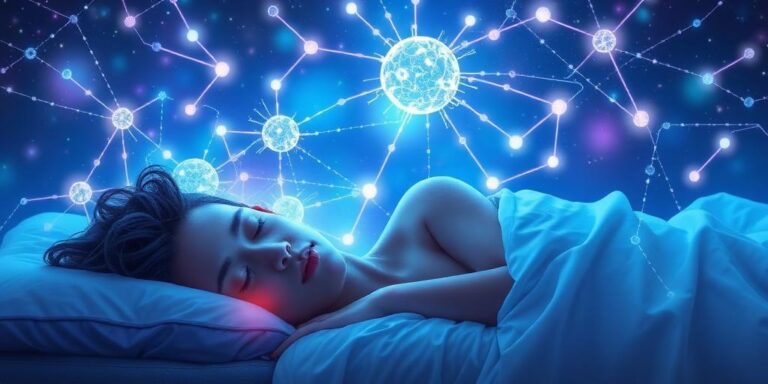The Future of AI-Generated Dreams and Experiences (2030)
Artificial intelligence is rapidly evolving, and by 2030, its impact on our lives will be even more profound. One of the most fascinating areas of development is AI-generated dreams and experiences. Imagine a world where you can curate your dreams, explore fantastical realities, and even learn new skills while you sleep. This is the trajectory we’re on.
Current State of AI and Dreams
As of today, AI can analyze brain activity with increasing accuracy. Research labs are using EEG (electroencephalography) and fMRI (functional magnetic resonance imaging) to decode brain patterns associated with different mental states, including sleep stages and dream content. While we’re not yet at the point of ‘recording’ dreams perfectly, significant progress is being made in understanding the neural correlates of subjective experiences.
Technological Advancements Expected by 2030
By 2030, we can anticipate several key advancements:
- Improved Brain-Computer Interfaces (BCIs): BCIs will become more sophisticated, offering higher resolution and more precise control over neural activity. Non-invasive BCIs, such as advanced EEG caps, will be more user-friendly and widely accessible.
- Advanced AI Algorithms: AI algorithms, particularly deep learning models, will become better at interpreting and generating complex sensory data. This includes visual, auditory, and even tactile information, allowing for more realistic dream simulations.
- Personalized Dream Generation: AI will be able to create customized dream scenarios based on an individual’s preferences, memories, and learning goals. Imagine AI tailoring a dream to help you practice a presentation, overcome a fear, or simply enjoy a relaxing vacation.
Potential Applications
The applications of AI-generated dreams are vast and span multiple sectors:
- Therapy and Mental Health: AI-driven dream therapy could help individuals process trauma, reduce anxiety, and combat depression. By creating controlled dream environments, therapists can guide patients through challenging emotions and experiences in a safe and supportive setting.
- Education and Skill Enhancement: Learning new skills could become significantly more efficient. Imagine learning a new language or mastering a musical instrument while you sleep. AI could create immersive dream simulations that accelerate the learning process.
- Entertainment and Recreation: The entertainment industry will be revolutionized. Instead of passively watching a movie, you could actively participate in a dream-like narrative, experiencing stories in a completely new way.
- Personal Growth and Self-Discovery: AI-generated dreams could offer opportunities for self-exploration and personal growth. By confronting your fears and exploring your subconscious in a controlled environment, you could gain new insights into yourself and your potential.
Ethical Considerations
However, the development of AI-generated dreams also raises important ethical questions:
- Privacy: How do we protect the privacy of our thoughts and dreams? Who has access to this data, and how is it used?
- Autonomy: To what extent should we control our dreams? Is it ethical to manipulate someone’s dreams without their consent?
- Reality vs. Simulation: How do we distinguish between real experiences and AI-generated ones? Could this technology blur the lines between reality and simulation, leading to confusion or even delusion?
Conclusion
The future of AI-generated dreams and experiences is filled with both immense potential and significant challenges. By 2030, we can expect to see remarkable advancements in this field, offering new possibilities for therapy, education, entertainment, and personal growth. However, it is crucial to address the ethical considerations and ensure that this technology is used responsibly and for the benefit of humanity. As we venture into this uncharted territory, thoughtful regulation and open discussion will be essential to navigate the complex implications of AI-generated dreams.




